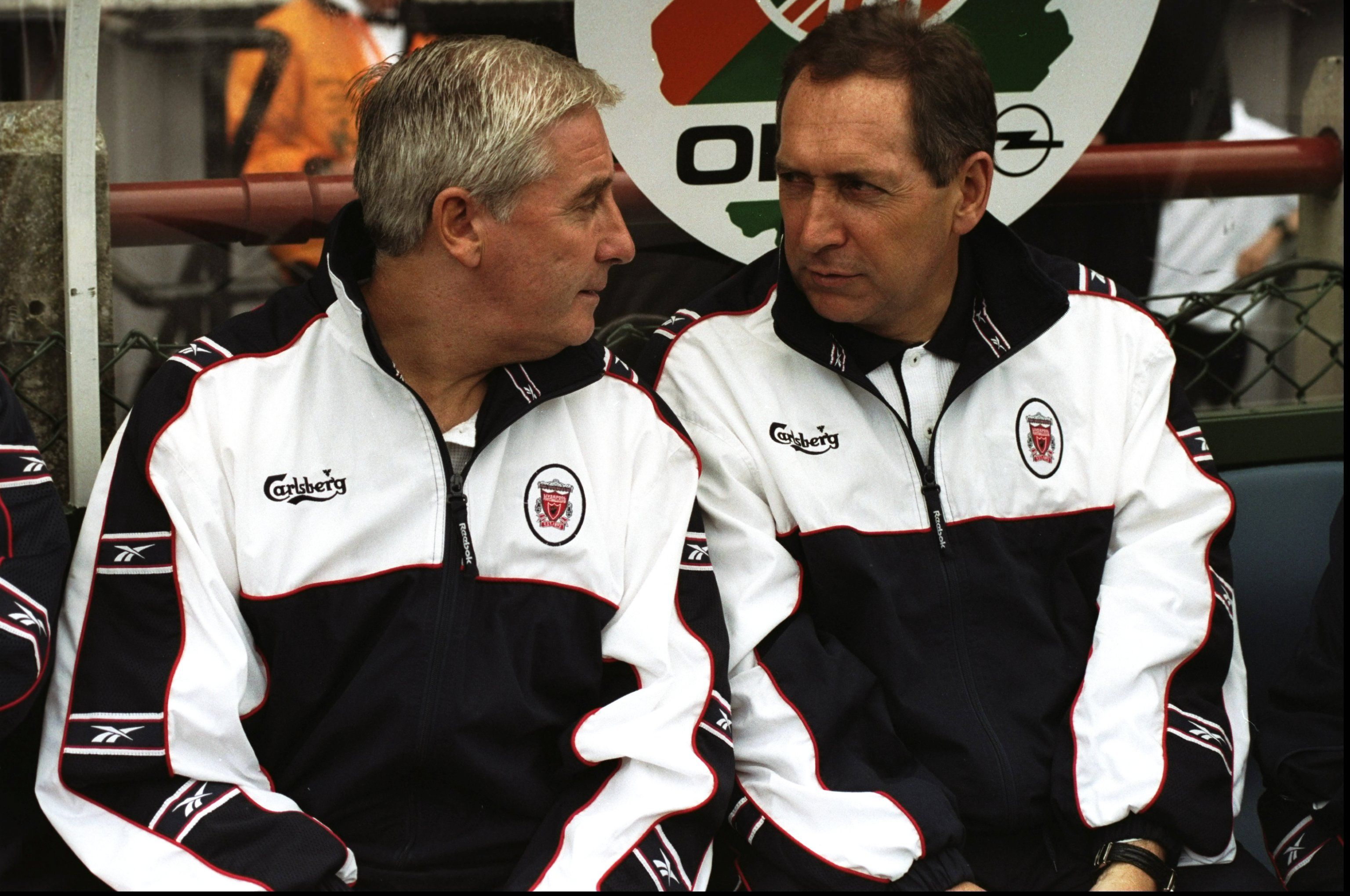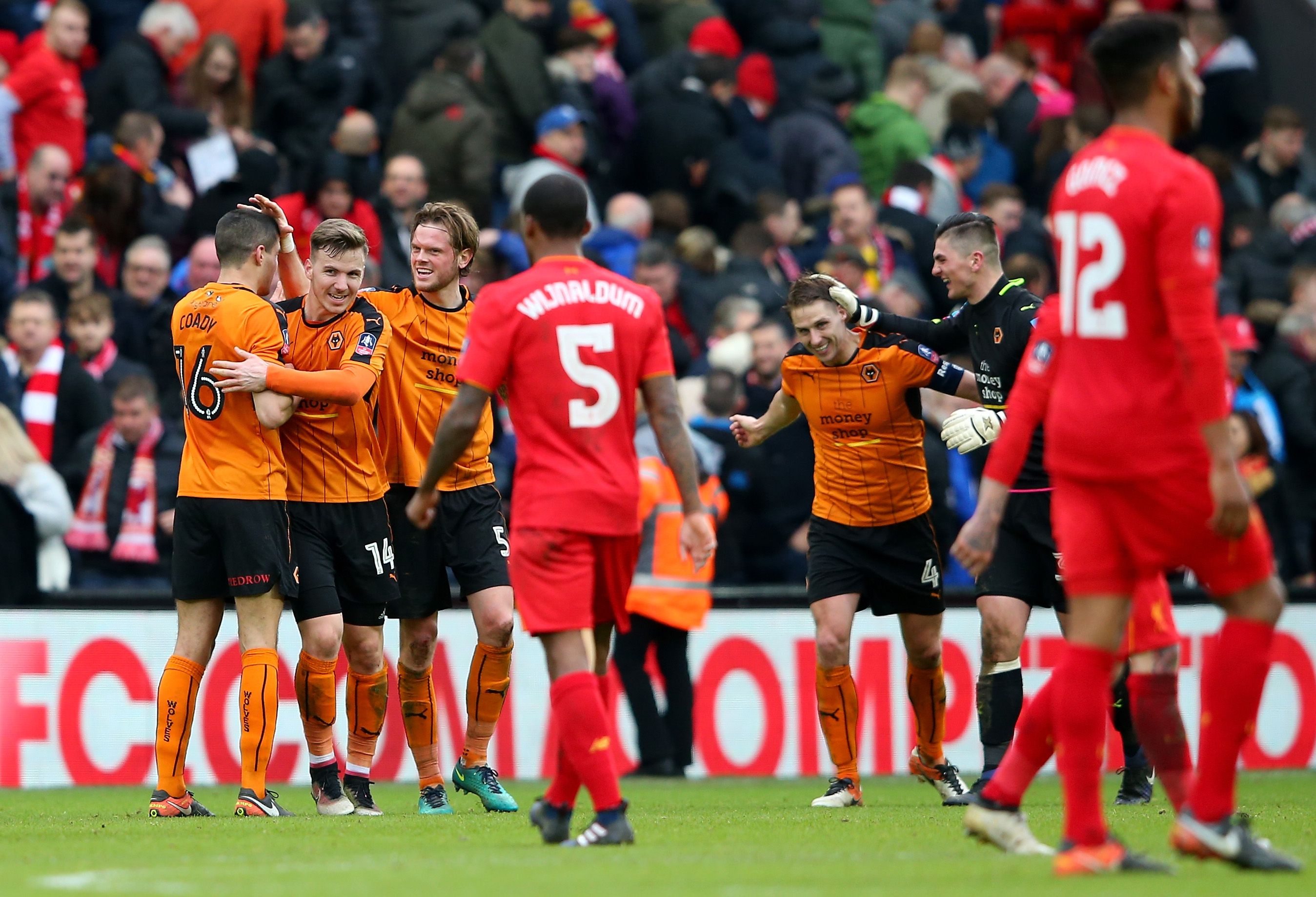“This has been a disastrous week for Liverpool.” Steve McManaman’s remark during Liverpool’s defeat to Wolves on Saturday captured the sense of despair enveloping Anfield after another Cup exit.
Some, however, might disagree. They might think the domestic cup competitions are, depending on the circumstances, primal scream therapy, a safe place for angry fans to release their stresses or, alternatively, football’s version of MSG, a brief and insubstantial hit that is quickly forgotten before being replaced with a new craving.
Right now, the cup competitions allow some Liverpool supporters to believe in crisis and to complain that Liverpool have lost out on their last realistic chance of a trophy.
On Saturday, Liverpool lost at home for the third time in a week, something that last happened in 1998 when the club had decided to experiment with joint managers before finally concluding during those seven days that the experiment wasn’t working.
The second defeat at Anfield on that occasion brought an end to Roy Evans’ time at the club, a reminder in itself of Liverpool’s long and ultimately fruitless search to find a manager they can believe in for a sustained period of time.
At that time, they had concluded that two men would have to do the job one was not capable of, an early sign during Liverpool’s long barren spell without a title that, if there is a possibility of embracing the dysfunctional, the club will find it.
If that was a way of avoiding a tough decision, every manager subsequently has had to conform to the idea that one man will be omnipotent and capable of effecting great change, even if the reality in modern football is very different, and the reality at Anfield has always been more complicated.
Liverpool’s problems are, in part, rooted in this need to believe, to feel there is a man out there who can overcome the disadvantages the club is stuck with. This one incredible figure will triumph through fortitude, will and a harnessing of whatever intangible the club are said to possess when observers are becoming sentimental.
Unsurprisingly, this may lead to an overstating of the manager’s gifts and a subsequent disillusionment when those gifts are not as all-powerful as they first appeared.
Jurgen Klopp did appear to fit the bill. Since his arrival in England, Klopp has become nearly universally popular, a man whose charm ensures he appeals to supporters of all clubs.
He is Liverpool’s most marketable asset, a man who can deliver any message, across any platform. If you were to mistake any football manager for a Messiah, it would be Jurgen Klopp.
Those who are sceptical question his achievements in Germany and wonder if he is a coach in the purest sense like Pep Guardiola or his successor at Borussia Dortmund, Thomas Tuchel.
In this analysis, as laid out in Marti Perarnau’s book on Pep Guardiola, Klopp’s Dortmund were an impressive “fighting machine”, before they disintegrated in his final season. Tuchel then took Dortmund to a higher level, developing a more controlled and intellectual football, far removed from the crazed approach of Klopp.
To these sceptics, Klopp is a song and dance man, somebody who is not concerned with the intricacies of the process.
Instead he focuses on atmosphere and motivation. Perhaps he is concerned with the human condition, but mainly in so far as how the human condition could make, say, Alberto Moreno less of a liability on a football field.
Yet these things matter too. In the final analysis, they may matter most of all.
Liverpool can’t complain if there are expectations that this man will make a radical difference as that is how he has been repeatedly portrayed.
Jurgen Klopp is still surely the man to end Liverpool's Dry January #888FFL pic.twitter.com/3Enij9wOUh
— JOE (@JOE_co_uk) January 28, 2017
When those expectations aren’t met, they must also be prepared for a reaction. But Liverpool’s problems in January are both overstated and revealing of more fundamental structural problems.
With Sadio Mane away and Philippe Coutinho injured, the gaps in Liverpool’s squad have been revealed. This shouldn’t surprise anyone who watched them finish eighth last season.
Their form in the first few months of this season has disguised these flaws while also raising hopes.
The truth, however, demonstrates why Klopp is more essential than ever and why the failures of the past week – although only the defeat to Swansea is of long-term significance – can be overcome.
In picking a young side and losing to Wolves, Klopp has been accused of failing to respect the traditions of the Cup, even if the traditions of the Cup don’t do much to protect a manager in trouble, as Louis Van Gaal found out last season.
Klopp still possesses the key ingredient needed to be a success at Liverpool: ruthlessness. Beyond that, Klopp wants to change how Liverpool feels about itself. It is an abstract concept in some ways, but if he succeeds it will be the most important transformation of all.
Liverpool, like Arsenal, appear condemned to repeat familiar cycles. But there is a key difference. Arsenal have established a pattern under Arsene Wenger which they seem doomed to repeat while he is in charge.
Their seasons follow a familiar arc which may only change when the manager leaves. Two FA Cup triumphs in recent years have done nothing to sate the hunger of the supporters who look back on them with the fondness one might have for a spring roll eaten at 3am on a Saturday some time before Christmas.
Liverpool’s pattern is different and persists no matter who is in charge. This would suggest an institutional failing or, simply, that in comparison to those clubs around them, they can only compete on an irregular basis.
Both those things can be challenged only by a man who has the determination of Klopp. The biggest misjudgement some in English football made was to assume that because he laughed a lot the manager was a nice guy. Or at least a soft touch.
Mamadou Sakho might have discovered something different when he went filming with his GoPro camera on Alcatraz last summer and inadvertently captured the truth.
If Liverpool beat Chelsea on Tuesday, the crisis will be over again. If Liverpool want to stop repeating the same mistakes, they’ll need Klopp’s gifts. Now more than ever.









































